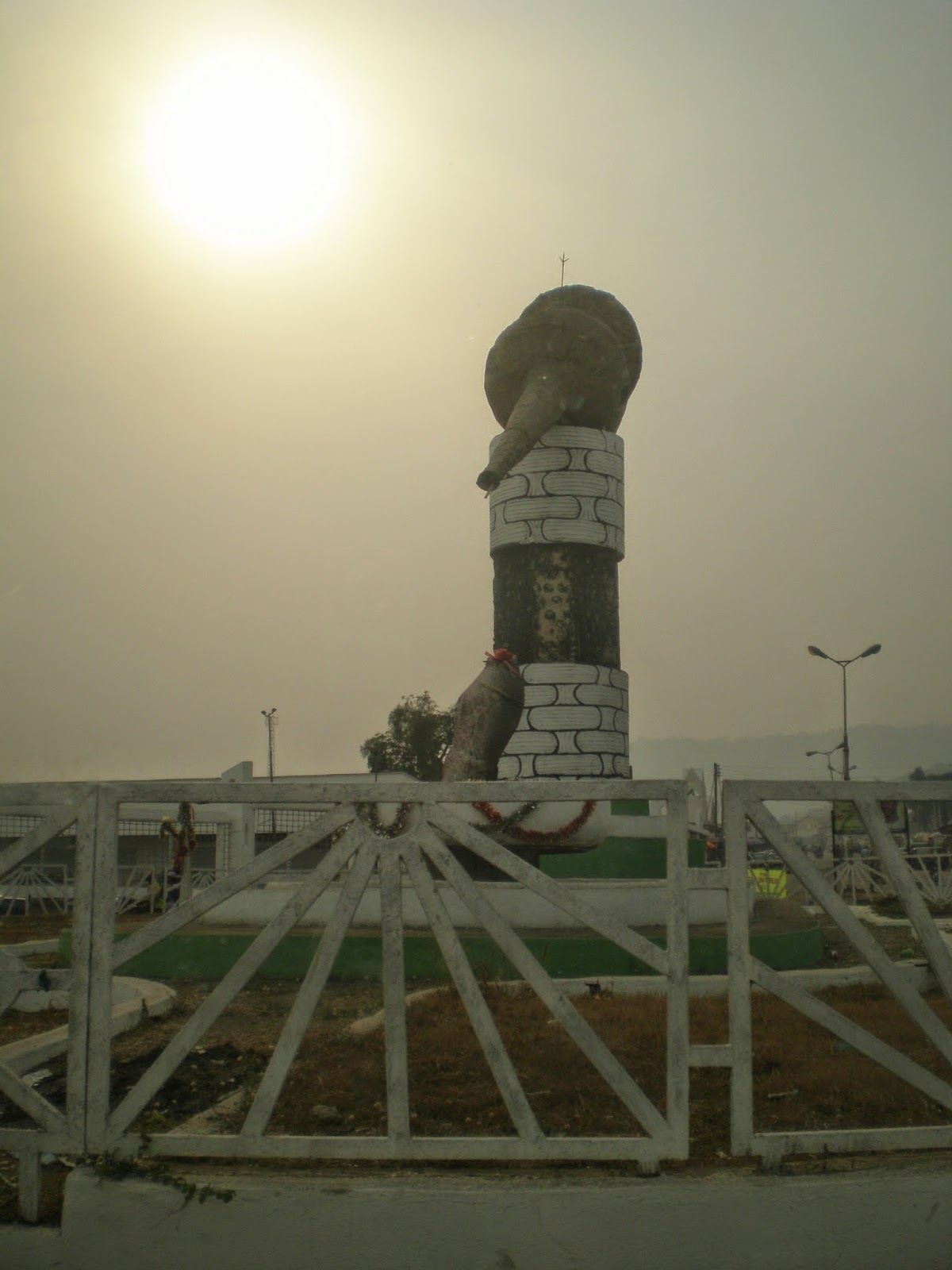Tomorrow, on 27
February, Nigeria will celebrate its 100th Birthday. More correctly,
it will mark the centenary of the amalgamation of the Northern and Southern
Protectorates. Preparations for a grand ceremony at the National Stadium in Abuja
are in place, complete with ‘international artists’ (see here – and don’t be
frightened by the alarming music). I had naively assumed that this would be an excuse for a good party, but I have spoken to a few Nigerian
friends about the celebrations and no-one seems remotely excited by the event. People are far more concerned about the terrible attack on a boarding school in Yobe on Monday, which left 29 students dead. Here in Abuja, drivers are more preoccupied with the enormous petrol queues (a driver from our office queued for five hours for fuel yesterday) and people are still reeling from
the suspension of the central bank governor, Lamido Sanusi, ostensibly for ‘financial
recklessness and misconduct’ but actually for asking too many questions about where the
missing $20bn in oil revenue has gone.
As this article on Sahara Reporters makes clear, many Nigerians don't feel they have a great deal to celebrate at present. This piece perfectly encapsulates the current mood in Abuja, including outrage that the recipients of 100 'centenary awards', designed to honour all those who have made Nigeria great (including the Queen, Lord Lugard and Flora Shaw), include past dictators and corrupt officials:
'How could we explain to a child living under fear in Maiduguri or the one in Otuoke, who goes to school on an empty stomach or to the parents of the 29 students killed by Boko Haram in Yobe that Nigeria’s former presidents and military dictators deserve to be flattered for the role they played in steering the Nigeria ship to this big mess?
To start with, the centenary celebration is misplaced. First, the amalgamation of Nigeria in 1914 was a colonial selfish act, which was meant to benefit Britain alone. Are we therefore congratulating Britain for colonizing us or what? I beg to differ; Nigeria is not 100 but 53. There is a difference between a protectorate and a nation. At 53, the state of the Nation is one that calls for sober reflection.
The balance sheet of 53 years of bad leadership are: grave insecurity, hunger, 80% youth unemployment, lack of basic infrastructure, water and electricity, high rate of infant mortality, lack of vaccine against malaria, short life span and an almost empty treasury. It is absurd and an insult to Nigerians, especially those who have genuinely contributed to the country, that those who are indeed responsible for the pitiable state of Nigeria were honoured by Jonathan.'
It is not a happy time in Nigeria. There is such potential here, but also such huge barriers to progress - with endemic corruption being at the heart of the problem. The scale of corruption here is truly unbelievable (as evidenced by this article in Vanguard earlier this month), but what I find almost more depressing is the way in which corruption percolates through to almost every area of life. Every transaction, every interaction has the potential for a bribe. Absolutely anything can be bought: you can wait in a petrol queue for four hours, or pay a bribe and jump to the front. You can be arrested for drunk driving, or pay a bribe and escape prosecution. So try and get into university on merit, or elected by relying on a democratic vote, or a promotion within the civil service without playing the system and you are doomed to failure. A nation which does not permit talent to rise to the top is fundamentally flawed and the implications for education, governance and administration are clear. And I guess that's not much cause for celebration.












































